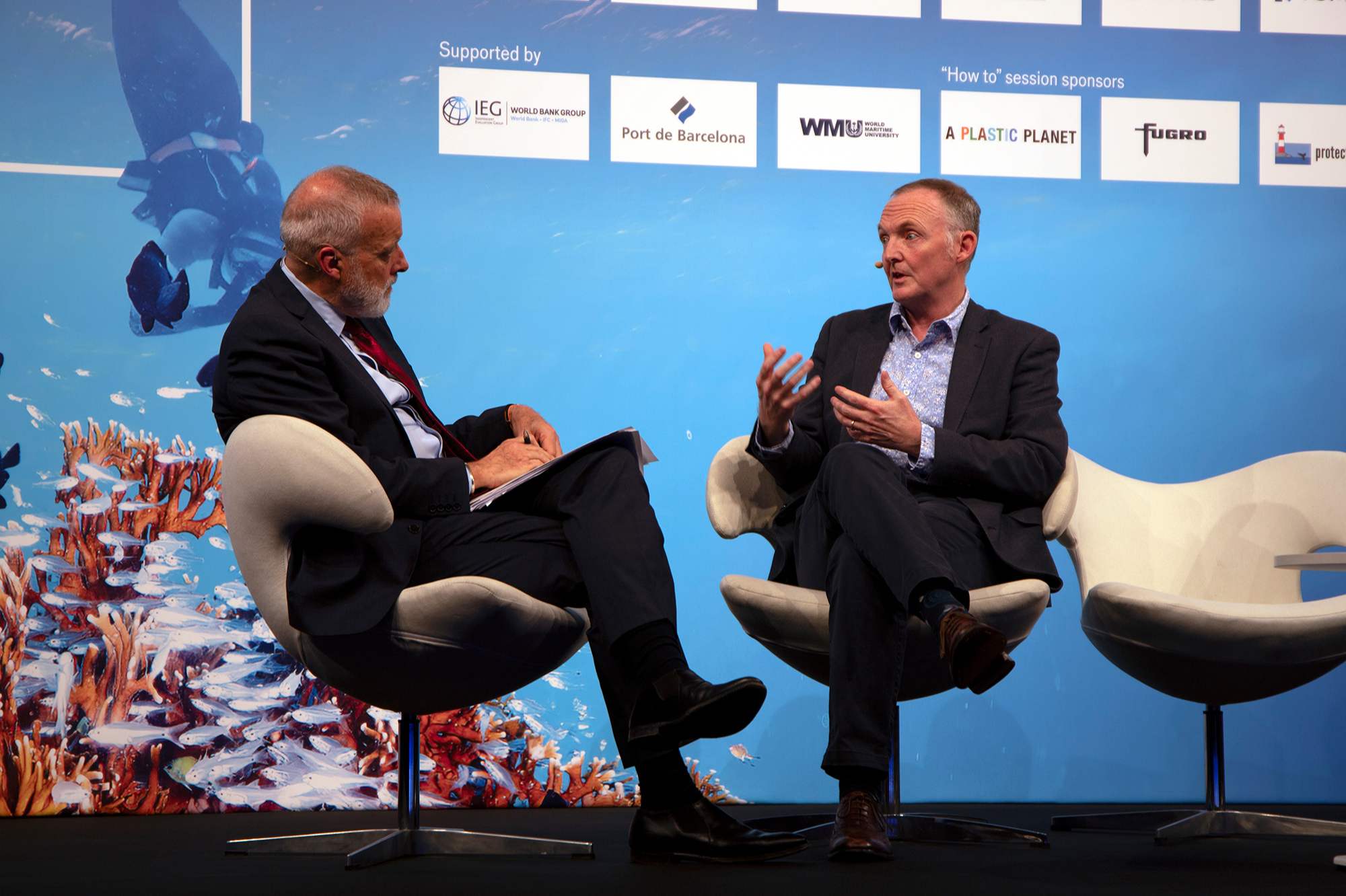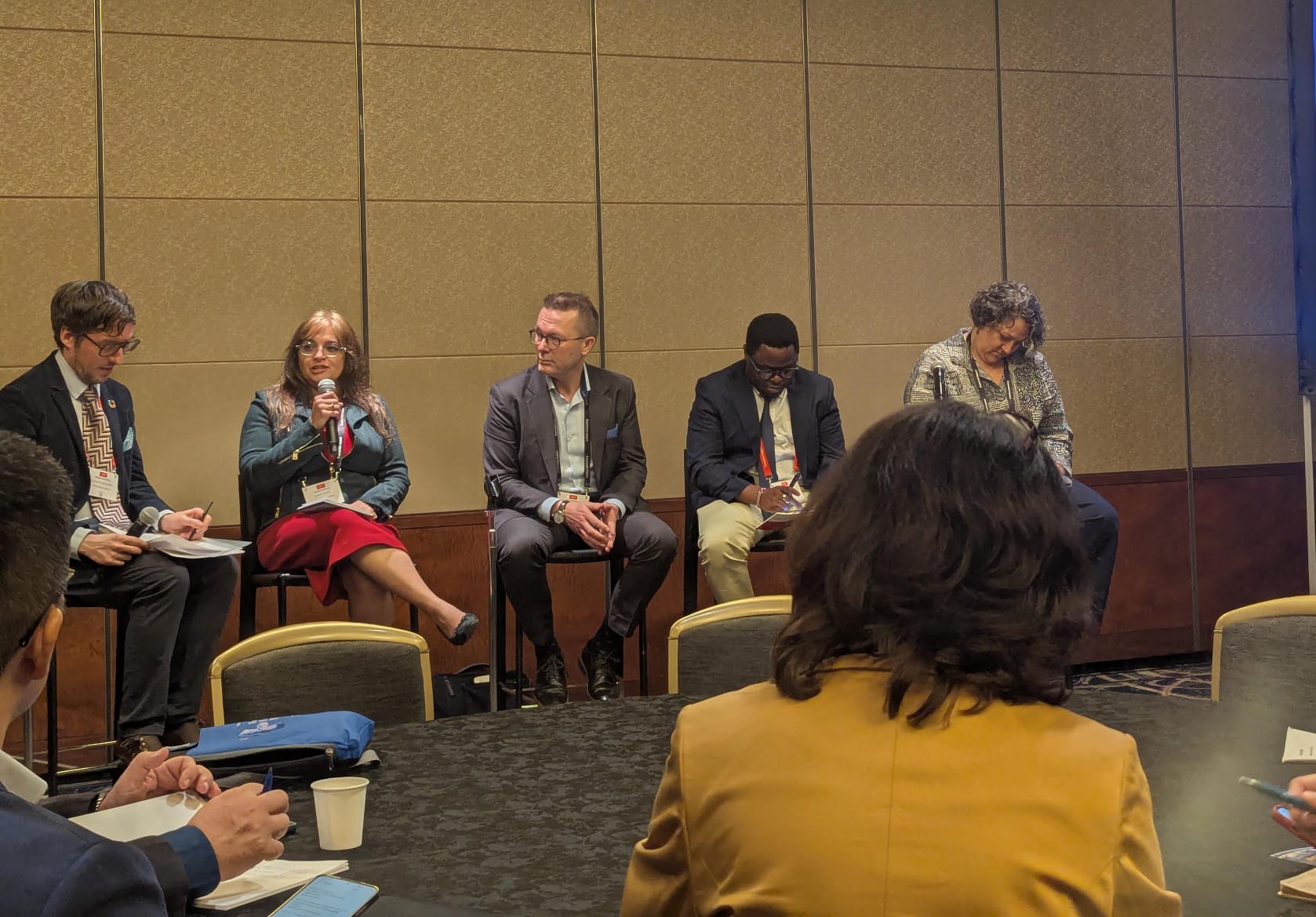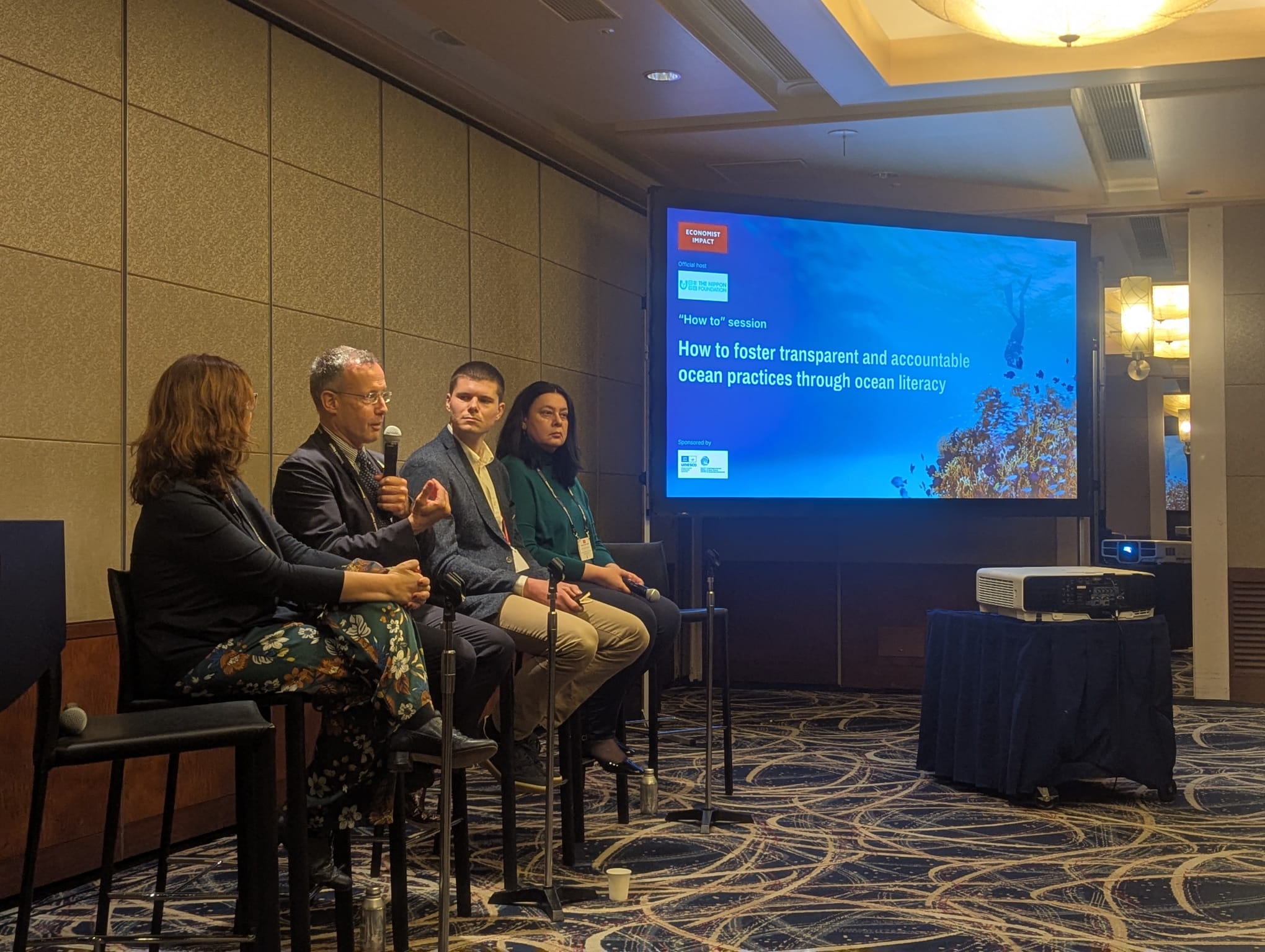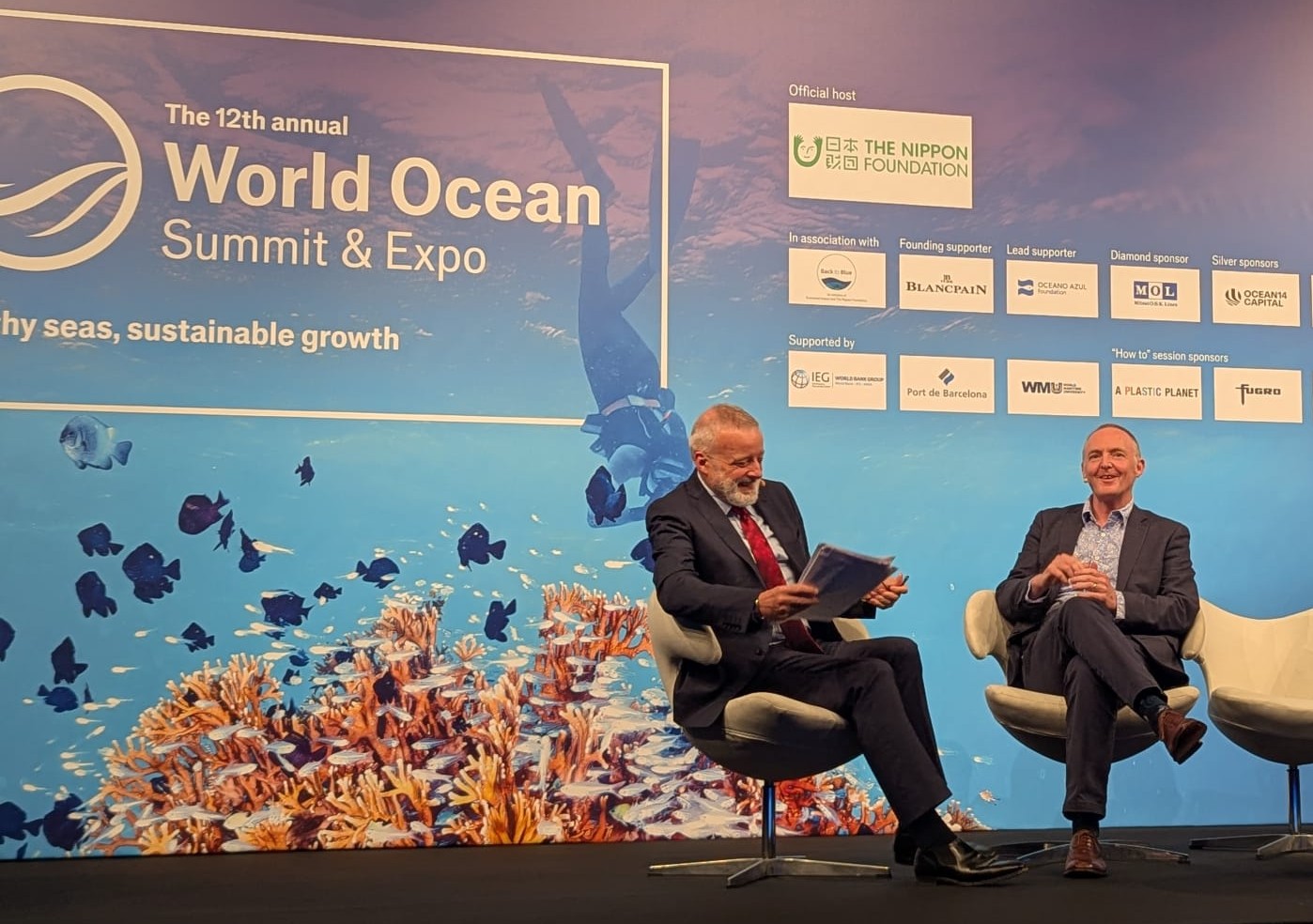Story
Beyond Sustainability: Reimagining Society’s Relationship with Nature at the World Ocean Summit
12 March 2025
Professor Steve Widdicombe spoke to Charles Goddard from Economist Impact during the opening session of the event in Tokyo.

With more than 800 leaders from across ocean academia, industry and policy gathered this week in Tokyo for the 12th World Ocean Summit (12th-13th March), PML’s Director of Science Professor Steve Widdicombe helped set the scene for discussions on day one by questioning traditional environmental frameworks and asking whether the accepted view of what constitutes “sustainability” is fundamentally flawed.
Following a welcome address from Japan’s Minister of State for Ocean Policy, Sakai Manabu, who highlighted the challenge of information gaps and the importance of new technology to leverage economic and natural benefits, Professor Widdicombe was interviewed on the main stage by Charles Goddard from Economist Impact, which hosts the event alongside the Nippon Foundation.
Asked initially about the evidence of the changes taking place, Professor Widdicombe said:
“The evidence is being largely documented in many of the global reports we’ve seen – IPCC and IPBES reports; the State of the Ocean report – all of which document the increasing stress placed on the Ocean and its ecosystems. But I think that the evidence we have is really just the tip of the iceberg. It’s just part of the story and the more [we understand], the more we see signs of growing distress in the Ocean.”
He pointed to worldwide developments which have become the subject of increasing concern:
“We’ve referred to, for example, the Atlantic Meridional Overturning Circulation slowing. You’ve heard of increasing polar ice melt. These changes we’re seeing are real, they’re concerning, they’re worrying, and it’s time to act. Failure to [do so] with the information we have would be irresponsible.”
Image: Economist Impact’s Charles Goddard speaking to PML’s Prof Steve Widdicombe
Challenging Boundaries
A significant portion of Professor Widdicombe’s message centred on the limitations of thinking in terms of boundaries when addressing ocean health.
“Recent thinking, at least outside the science community, recognises that boundaries are important. Some of the impacts in the ocean – they don’t recognise these boundaries because it’s the cumulative effect of what we’re doing. We know that many of our behaviours exist in the terrestrial realm, but the costs of our actions ripple outward. So, let’s think about the Ocean as part of the planetary system first and foremost.”
Furthermore, he noted:
“The Ocean is part of [that] system so we need to think more holistically. Changes in weather can have huge impacts on freshwater, coastal areas, changing coastal chemistry. Things that we might think of as isolated biological responses are far more integrated, far more interconnected.”
A New Relationship with the Ocean
Coinciding with the launch of PML’s 2025-30 “Science for Ocean Action” Strategy, Professor Widdicombe called for a fundamental shift in how we conceptualise our relationship with the Ocean, a sentiment that was echoed in subsequent sessions throughout the day.
“We are part of the Earth system; the ocean system. We are an intrinsic part of this system whether we recognise it or not, and every action we take has a consequence. We talk a lot about sustainability and sustainable development, but I wonder whether the concept of these boundaries and the concept of sustainability itself makes us think in the wrong way [as it] makes us think that there are ways in which we can operate which have no consequences,” Widdicombe said.
“We need to think about how we become more honest with ourselves in our actions and strive for a relationship between society and nature that is more respectful, more equitable, and more ethical – not just amongst ourselves but also within the entire Ocean itself. After all, we are Ocean, and Ocean is us,” he concluded.
PML at the World Ocean Summit
PML Trustee Dr Jyotika Virmani and PML Honorary Fellow Torsten Thiele also played an active role in day one of the Summit, taking part in a number of sessions and panels.

Image: PML Trustee Dr Jyotika Virmani speaking
As part of the morning workshop on “How to shape Global Standards for Blue Data, Technology and Capacity Building” Dr Virmani highlighted the issue of permitting as one of the major limiting challenges for marine science data collection.
Meanwhile, Torsten Thiele used his introductory remarks in the “How to unlock greater investment in ocean science and infrastructure” session to urge a more constructive approach to ensuring financial pathways can be found for science and innovation, including through public-private investment in multi-purpose infrastructure.

Image: PML Honorary Fellow Torsten Thiele speaking
Day two will see Professor Widdicombe taking part in a session on Ocean Acidification and Biodiversity Loss: turning knowledge into action” while Professor Tim Smyth will deliver an innovation showcase on “Satellite Seascapes: applying advanced technology to tackle marine and light pollution.”
